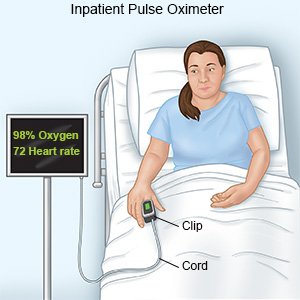Viral Pneumonia
Medically reviewed by Drugs.com. Last updated on Apr 6, 2025.
Viral pneumonia is a lung infection caused by a virus, such as those that cause the flu or COVID-19. You can get a viral infection by breathing in the virus or by touching something that has the virus on it. You can develop viral pneumonia if a virus in your body travels to your lungs.
 |
WHILE YOU ARE HERE:
Informed consent
is a legal document that explains the tests, treatments, or procedures that you may need. Informed consent means you understand what will be done and can make decisions about what you want. You give your permission when you sign the consent form. You can have someone sign this form for you if you are not able to sign it. You have the right to understand your medical care in words you know. Before you sign the consent form, understand the risks and benefits of what will be done. Make sure all your questions are answered.
An IV
is a small tube placed in your vein that is used to give you medicine or liquids.
Medicines:
- Antivirals are given to treat pneumonia caused by a virus.
- Acetaminophen and ibuprofen decrease fever and pain.
Tests:
- A chest x-ray may show signs of infection in your lungs.
- A mucus culture may be tested for other infections and also to find out which virus caused your pneumonia. Your healthcare provider may swab your throat or the inside of your nose to get a mucus sample. You may be asked to cough mucus into a cup.
- Pulse oximetry measures the amount of oxygen in your blood.

- Blood tests may be used to check for signs of infection.
Respiratory isolation
is a precaution used to protect other people from your germs. Healthcare providers and visitors may wear gloves, a face mask, or a gown. Everyone should wash their hands when they enter and leave your room.
Treatment:
- Airway clearance techniques are exercises to help remove mucus so you can breathe more easily. Your healthcare provider will show you how to do the exercises. These exercises may be used along with machines or devices to help decrease your symptoms.
- Respiratory support is given to help you breathe. You may receive oxygen to increase the level of oxygen in your blood. You may also need a machine to help you breathe.
- Breathing treatments may be needed to help open your airways so you can breathe easier. A machine may be used to help you breathe in medicine.
RISKS:
Viral pneumonia can progress to bacterial pneumonia, which is a more serious illness. You could develop respiratory failure and need a ventilator to help you breathe. You could develop sepsis, which is a life-threatening blood infection. Viral pneumonia can become life-threatening, especially in older adults and people with other health problems.
CARE AGREEMENT:
You have the right to help plan your care. Learn about your health condition and how it may be treated. Discuss treatment options with your healthcare providers to decide what care you want to receive. You always have the right to refuse treatment.© Copyright Merative 2025 Information is for End User's use only and may not be sold, redistributed or otherwise used for commercial purposes.
The above information is an educational aid only. It is not intended as medical advice for individual conditions or treatments. Talk to your doctor, nurse or pharmacist before following any medical regimen to see if it is safe and effective for you.
Learn more about Viral Pneumonia
Treatment options
Care guides
Further information
Always consult your healthcare provider to ensure the information displayed on this page applies to your personal circumstances.
